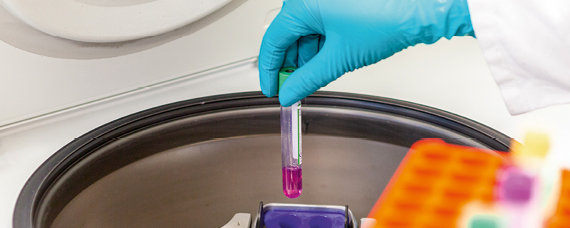What you can expect
- Advancement of the group's research strategy for molecular precision healthcare through the use of ethnically diverse biobank-scale DNA sequencing resources, including whole exome and whole genome sequencing, in agreement with the leadership team
- Development of the research group, supervision, development and management of junior staff and students
- Mining of electronic health records to sample patient cohorts for genetic analysis
- Implementation and development of statistical techniques to associate rare and structural variation in the human genome with health outcomes at scale, including the use of deep learning-derived variant prioritisation methods
- Using genetically anchored causal inference methods to advance understanding of the genetic causes and mechanisms underlying diverse diseases and their subtypes in ethnically diverse populations
- Developing bioinformatic workflows that integrate population-scale genomics research with single cell experiments, to identify disease-relevant cell types and states
What you bring along
- PhD in genomics, statistical genomics, genetic epidemiology or a closely related discipline
- Stage-appropriate track record of high-impact research and publications in the field of genomics, multiomics, and/or single-cell analysis
- Evidence of successful grant funding and managerial experience, depending on career stage
- Demonstrable experience in several of the following areas: 1) Generation and/or analysis of high-throughput genomic data, 2) Genome-scale association analyses using large-scale whole-genome or whole-exome sequencing data, 3) High level of proficiency in computational genomics e.g, variant annotation
- Aptitude for biological inference and clinical translation
- Demonstrable extensive experience with principal programming languages in HPC or cloud environments
- Desirable skills and experience: experience in integrating single-cell omics data, including sc-RNAseq or sc-ATACseq
- High level of proficiency in the English language
What we offer you
- A varied job in a forward-looking research institute
- Pay group E13 TVöD VKA-K. The classification is based on qualifications, the respective experience level is calculated on the basis of professional experience. The annual salary (gross) is stated for a full-time position without special or additional payments. The collective agreement can be found here.
- Additional benefits customary in the public sector (including annual special payment, company pension scheme (VBL), capital-forming benefits)
- Flexible working hours and the option of working remote
- 30 vacation days per year (with a five-day week)
- Various support offers to balance work and family life (childcare, cooperation with voiio)
- Very good training and further education opportunities
- Mobile citizens' office on site
- Corporate benefits (travel, leisure, shopping, etc.), Charité Gympass, JobRad
- Very easily accessible and attractive workplace at the Rahel Hirsch Center for Translational Medicine, Luisenstr. 65, 10117 Berlin







